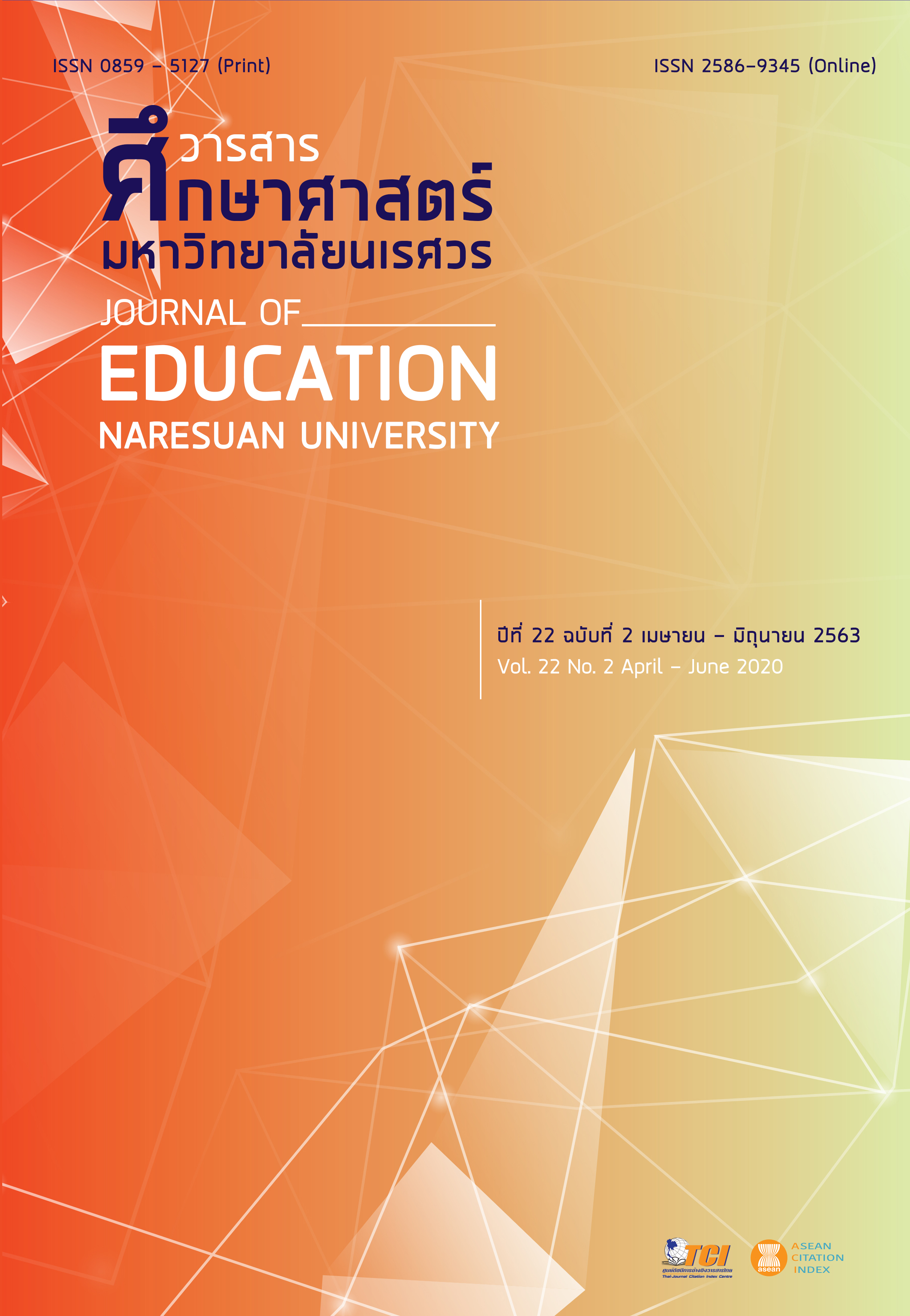PROMOTING SCIENTIFIC LITERACY BY USING SCIENCE, TECHNOLOGY, SOCIETY, AND ENVIRONMENT (STSE) APPROACH OF GRADE 11 STUDENTS ON THE TOPIC OF PLANT GROWTH
Main Article Content
Abstract
Nowadays, Scientific literacy is necessary for students to use scientific knowledge to consider and solve the problem for life in today’s world. One of the key issues is the using of agrochemical products that led to health problem, customer safety and environmental issues. This action research purposed to investigate how to use Science, Technology, Society, and Environment (STSE) approach to promote students’ scientific literacy of grade 11 students on topic of plant growth and to examine students’ scientific literacy after learning by the STSE approach. The data was collected from STSE learning activity plan, reflective learning tools, PISA-like test and student worksheets. The data was analyzed using content analysis, mean and percentage and examine using resource and method triangulation. The findings showed that STSE approach should start with environmental issues for motivation; exploration; brainstorming and decision making to choose the best way of the class. The students who learnt though STSE approach have higher scientific literacy. According to the high scores of the competencies of scientific literacy throughout the study. The most developed competency was interpreting data.
Article Details
The owner of the article does not copy or violate any of its copyright. If any copyright infringement occurs or prosecution, in any case, the Editorial Board is not involved in all the rights to the owner of the article to be performed.
References
Gresch, H., Hasselhorn, M., & Bögeholz, S. (2015). Enhancing decision-making in STSE Education by inducing reflection and self-regulated learning. Research in Science Education, 47, 95-118.
Hodson, D. (2008). In towards scientific literacy: A teacher guide to history, philosophy and sociology of science Rotterdam. The Netherlands: Sense.
Kijkuakul, S. (2014). Learning management in science: Direction for teacher in 21th century. Phetchabun: Julladis Printing. [in Thai]
Klaynin, S. (2012). The science education in Thailand: developing and deterioration. Samutprakarn: Advance printing service. [in Thai]
Ladachart, L., & Yuenyoung C. (2016). What science teacher should learn from national assessment. Parichart J. (Thailand: Thanksin University), 28(2), 108-137. [in Thai]
Lau, K. C. (2013). Impacts of a STSE high school biology course on the scientific literacy of Hong Kong students. Asia-Pacific Forum on Science Learning and Teaching, 14. Retrieved from http://www.ied.edu.hk/apfslt/
Organization for Economic Co-operation and Development (OECD). (2016). PISA 2015 assessment and analytical framework: Science, reading, mathematic and financial literacy. PISA ; OECD Publishing.
Pedretti, E., & Nazir, J. (2011). Currents in STSE Education: Mapping a Complex Field, 40 Years on. Science Education, 95, 601-626. http://dx.doi.org/10.1002/sce.20435
Rosario, B. I. D. (2009). Science, Technology, Society and Environment (STSE) approach in environmental science for conscience students in a local culture. CHED Accredited Research Journal, (1), 269-283.
The Institute for the Promotion of Teaching Science and Technology (IPST). (2017). What the assessment of PISA 2015 illustrates in policy. Bangkok: The Institute for the Promotion of Teaching Science and Technology. [in Thai]
Yoruk, N., Morgil, I., & Secken, N. (2009). The effects of science, technology, society and environment (STSE) education on students’ career planning. US-China Education Review, 6(8), 68-74.
Zhang, T., Asher, E., Zhang, M., & Yang, J. (2017). Thinking about science: Understanding the science, technology, society and environmental education of Canada. International Journal of Education and Social Science, 4(2), 15-20.


